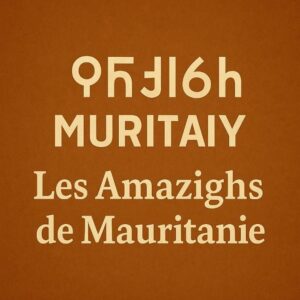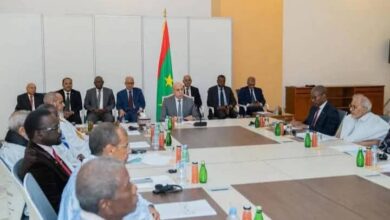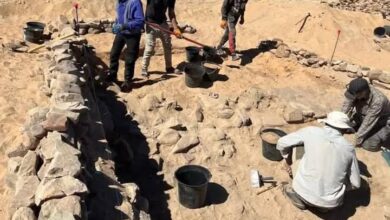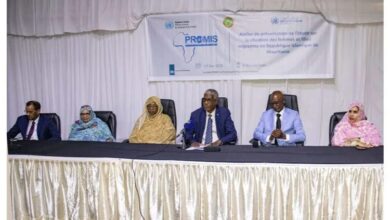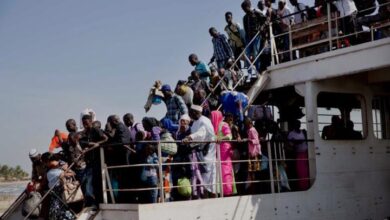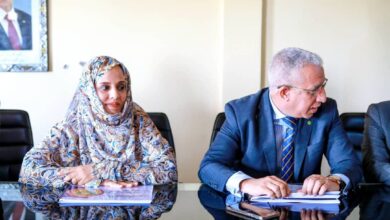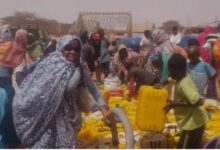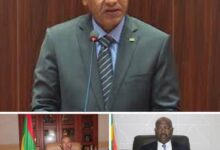The Amazigh of Mauritania: A Forgotten Memory and an Identity Beneath the Ashes
investigation by :
Mohamed Abdarahmane Ould Abdallah – Journalist, Nouakchott
In a silence akin to disappearance, on the fringes of the official narratives that shaped the national identity, the Amazigh roots in Mauritania stand like forgotten ruins—choked by sweeping changes and erased from tongues and minds with little resistance.
In a country where Hassaniya culture reigns supreme, what remains of the Amazigh imprint are scattered family names, customs resisting assimilation, and the echoes of a language that departed without farewell.
■ Who are the Amazigh of Mauritania?
The Amazigh in Mauritania descend primarily from two major groups: the Zenata and the Sanhaja, among the oldest inhabitants of the Sahara. The Sanhaja—more numerous—formed the backbone of the Almoravid army that established the first transnational Maghreb state. They were once masters of caravans, trade, and scholarship.
Historically, they played a central role in founding major cities from Sijilmassa to Aoudaghost, passing through key towns like Chinguetti and Oualata. Yet time was not kind to them, as their identity gradually faded under the dominance of the Hassaniya tongue and waves of Arab migration.
■ The Path to Erasure: From Integration to Exclusion
At first, cultural integration was not a tragedy—it was a flexible coexistence among diverse population groups. But successive waves of Arabization, particularly from the late 19th century onward, and the reinforcement of a singular national narrative under the modern state, gradually reduced Amazigh identity to a memory held only by those who no longer spoke it.
In this Arab-Berber society, openly claiming Amazigh heritage has sometimes been perceived as tribal regression or marginal affiliation. Some families of Amazigh descent began deliberately erasing traces of their roots—either to avoid social exclusion or to conform to the dominant cultural structure.
Many tribes even invented fictitious genealogies, claiming descent from noble Arab lineages, including the Prophet’s companions or the Caliphs themselves.
However, genetic science has now become a major obstacle to such fabricated claims, exposing historical inconsistencies.
■ Do Any Traces Remain?
Despite it all, some families still retain names, expressions, and rituals of purely Amazigh origin—appearing at weddings, in words passed down from grandmothers, in traditional healing practices, in burial customs, or even in fabric patterns and home decorations.
But the Amazigh language itself has completely vanished from Mauritania. Today, it is no longer spoken anywhere—except by a handful of elderly individuals in the country’s southwestern region, which had historically seen the densest Amazigh presence.
There are also faint linguistic traces in some geographical names, or in words that found their way into Hassaniya with no known origin.
■ What Do History and Documents Say?
Ancient manuscripts and books such as “Al-‘Ibar” by Ibn Khaldun refer to the Amazigh heritage of many Mauritanian tribes, particularly in the north, east, and southeast.
Moreover, French colonial documents from the 19th and 20th centuries categorize large segments of Mauritanian society—especially among Zawiya clerics, craftsmen (Lemallemin), and even Haratine communities—as having Berber origins.
These documents offer an ethnic map that was deliberately ignored after independence, when political elites redefined national identity along an exclusively Arab-Islamic axis, neglecting or denying the country’s rich linguistic and cultural diversity.
■ Media and Education: Systematic Erasure
It is striking that Mauritania’s official media do not acknowledge any Amazigh component whatsoever. There are no programs, documentaries, or references in school curricula to this cultural layer.
The official narrative reduces the population to a binary of Arabs and Black Africans, without acknowledging that many Hassaniya speakers actually descend from pure or mixed Amazigh roots.
■ What About Neighboring Countries?
In Morocco and Algeria, despite political complexities, official recognition of the Amazigh language and culture began in the early 2000s. Specialized institutes were established, and Amazigh was recognized as an official language in Morocco’s constitution.
In Mauritania, Amazigh demands are still nonexistent—either due to fear of social rejection or a lack of collective awareness about an identity that was deliberately suppressed.
■ Is There Hope for Revival?
Despite official silence, some individual initiatives—by researchers and cultural enthusiasts—have emerged to collect and document remaining oral Amazigh traditions or reinterpret the histories of local tribes.
There are also early signs of awareness among segments of Mauritanian youth, pushing for reconciliation with the country’s multiple identities and rejecting enforced cultural uniformity.
■ Conclusion
The goal of reclaiming Amazigh identity in Mauritania is not to spark division or regress into tribalism.
It is part of a broader national struggle for the recognition of all components of the nation—to build a shared future.
Identities cannot be erased by decrees, nor abolished by textbooks.
They are like embers beneath the ashes: forgotten, perhaps—but never dead.


